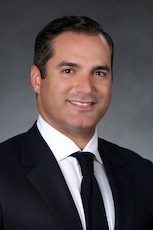 For community associations, preserving the property and its common areas is one of the foremost duties of the association directors. Beyond the day-to-day maintenance responsibilities, association directors and managers are responsible to develop funding plans for the upkeep and replacement of common facilities such as elevators, roofs, heating/cooling systems, swimming pools, decks and balconies. These funding plans generally take the form of accumulated budgetary reserves to help spread the anticipated costs of deferred maintenance or capital expenditures for the associations’ common facilities or building components over the estimated remaining useful lives of the components. Maintaining well-funded reserves enables associations to avoid large annual assessment increases or special assessments that can create financial hardship for the unit owners at those times when raising funds is required to perform the necessary deferred maintenance or replacement.
For community associations, preserving the property and its common areas is one of the foremost duties of the association directors. Beyond the day-to-day maintenance responsibilities, association directors and managers are responsible to develop funding plans for the upkeep and replacement of common facilities such as elevators, roofs, heating/cooling systems, swimming pools, decks and balconies. These funding plans generally take the form of accumulated budgetary reserves to help spread the anticipated costs of deferred maintenance or capital expenditures for the associations’ common facilities or building components over the estimated remaining useful lives of the components. Maintaining well-funded reserves enables associations to avoid large annual assessment increases or special assessments that can create financial hardship for the unit owners at those times when raising funds is required to perform the necessary deferred maintenance or replacement.
For condominium associations, establishing and funding reserve funds is an obligation of the board, as reserves are statutorily required to be included in condominium association budgets that must be adopted each year. Specifically, condominium associations must maintain reserve funds for roof replacement, exterior paint, pavement resurfacing and all other items for which the replacement or deferred maintenance costs exceed $10,000. Additionally, depending upon certain circumstances, the boards of some homeowners associations may also be required to budget for reserves, depending upon whether it is required by the association’s governing documents as established by the developer or voted for by the association members. While the funding of reserves may be waived or reduced on an annual basis upon obtaining the appropriate membership vote, community association boards may not be automatically required to submit such a question for a vote of the membership.
In an effort to ensure the proper funding of reserves it is in the best interests of most associations to retain highly qualified and experienced consultants to prepare an objective reserve study for the association. These studies are used to assess the actual costs for the ongoing maintenance of all of common facilities and building components. They include a detailed analysis of the current condition of the major components as well as a financial breakdown for their expected maintenance, repair or replacement costs. The experts who prepare these studies use a formula that takes into account the estimated cost of deferred maintenance or replacement as well as the remaining useful life of the component.
In light of the higher costs typically associated with comprehensive reserve studies, some smaller associations have opted for a simpler analysis, such as a Five-Year Capital Plan that is prepared by experienced professionals. Such a plan may be used by the board to determine the level of reserves expected to be required.
In addition to properly establishing and maintaining reserve funding and preventing deficits thereof, association board members have a fiduciary duty to the unit owners to ensure that a community’s reserve funds are protected and invested properly. Risky investments are not appropriate for these funds, and it is highly recommended for associations to turn to qualified professionals for their investment and tax advice. It is also imperative for reserve funds to be accounted for appropriately and accurately in the financial statements, audit reports, budgets and other financial and administrative community association records.
For condominium associations and their directors, one of the most helpful informational resources related to reserves is available online from the Florida Department of Business and Professional Regulation, Division of Condominiums. The agency’s “Budgets and Reserve Schedules: A Self-Study Training Manual” is the state’s official training manual for condominium association directors and members on association budgets and reserves. Click here to read and print the manual.
Another very helpful resource for all types of community associations is the “Reserve Studies/Management Best Practices Report” issued by the Foundation for Community Association Research, which is available by clicking here.
Community association board members must consider many factors in order to properly assess and fund their associations’ reserve accounts.With the proper guidance and planning, properly established and funded reserve accounts assist associations to avoid unexpected financial burdens for all of the unit owners.
Roberto Blanch has been an attorney with Siegfried, Rivera, Hyman, Lerner, De La Torre, Mars & Sobel, PA, since 2001, and became a shareholder in 2007. He received his Bachelor of Science in Business Administration from the University of Florida in 1997 and his Juris Doctor from Saint Thomas University in 2000.
Mr. Blanch concentrates his practice in Community Association Law, handling a broad range of legal issues for the firm’s Condominium and Homeowner Association clients. He is also a regular co-host on Straight Talk on Condo and HOAs with Siegfried, Rivera, Hyman, Lerner, De La Torre, Mars & Sobel, P.A.






